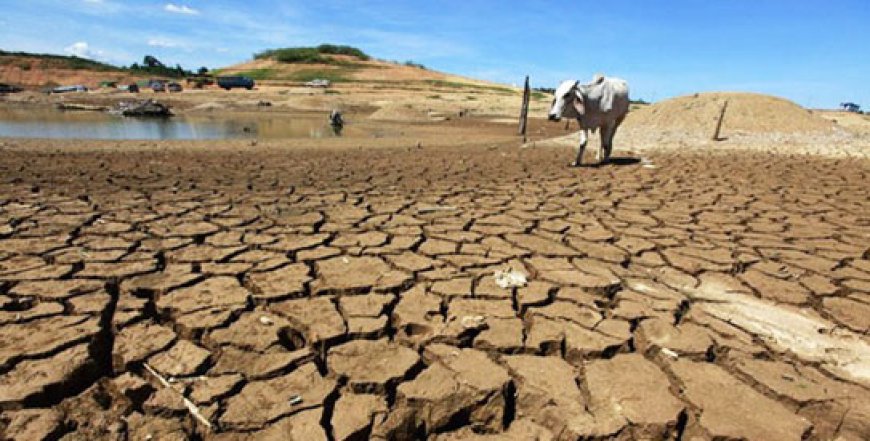Food Crisis to escalate in Kenya and Somalia in 2023,IGAD says

Kiambu, Thursday June 15, 2023
KNA by Wangari Ndirangu
Over 30 million people are expected to require humanitarian food assistance in Kenya, Somali, South Sudan and Uganda.
These are the projections for 2023 made Wednesday by Intergovernmental Authority on Development (IGAD) Regional Focus of the Global Report on Food Crises (GRFC) 2023.
The report notes that an estimated 7.5 million people in Kenya, Somalia, South Sudan, and Sudan are projected to face significant food consumption gaps and adopt emergency coping measures while more than 83,000 individuals are anticipated to face extreme lack of food.
According to the report, by last year over 55 million people across the seven out of eight IGAD member states are facing acute hunger and requiring urgent food, nutrition, and livelihood assistance in the IGAD region which is an increase of over 13 million from 2021.
Even if the March-May 2023 rains brought some relief from the Horn of Africa’s worst drought in more than four decades, the report says that the region will continue to deal with its catastrophic consequences in 2023 and beyond.
The recovery of pastoral and agro pastoral livelihoods from the devastating three-year drought will take years and humanitarian assistance continues to be critical until households and communities can recover, the report added.
The countries namely Kenya, Djibouti, Ethiopia, Somalia, South Sudan, Sudan and Uganda marked the highest number of acutely food-insecure people in the region over the past five years according to the report.
The worsening situation, the reports adds is attributed to the compounding effects of multiple shocks, including an unprecedented three-year drought in the Horn of Africa, record-breaking flooding in South Sudan, protracted conflicts, and macroeconomic challenges driven by the ongoing impacts of COVID-19 and exacerbated by the war in Ukraine.
IGAD Executive Secretary Dr Workneh Gebeyehu said, “Hunger levels in our region are at an unprecedented high. This situation is inextricably linked to climate extremes and disasters, conflict and insecurity, and economic shocks, increasingly intertwined with spiraling negative consequences for tens of millions of children, men, and women.”
He added that the crisis calls for a paradigm shift and in order to make advancements towards SDG 2 to End Hunger, countries must take bolder action to build resilience against future shocks, including transforming agri-systems to become more efficient, inclusive, and sustainable.
“We must increase our efforts to build and sustain peace. Conflict and food insecurity are intertwined, and this has never been clearer,” the IGAD Executive Secretary added.
The Executive Secretary’s message was echoed by FAO's Sub-regional Coordinator for Eastern Africa and Representative to the African Union and to the United Nations Economic Commission for Africa Dr Chimimba David Phiri, who stated that the report should serve as a wake-up call for to take immediate and collective action to change ways of working to address the root causes of food insecurity.
“The recent three-year drought across the Horn of Africa highlights the urgent need to upscale and institutionalize anticipatory action and climate adaptation strategies to prevent, rather than just respond to, future climate emergencies,” he added.
Phiri noted that even as food insecurity caused by conflicts and the knock-on effects of global economic shocks happens, it highlights the critical need for efforts that sustainably build peace, increase domestic production, and reduce post-harvest losses in the IGAD region.
The World Food Programme (WFP) Deputy Regional Director for Eastern Africa, Rukia Yacoub says that the conflict in Sudan is sending hunger shockwaves across an already fragile region, as hundreds of thousands of people continue fleeing to neighbouring countries and pushing up already alarming food insecurity and malnutrition levels, and further stretching scarce humanitarian resources.
Looking ahead , the report has noted the urgency and magnitude of the challenges that the Eastern Africa region faces and has called for immediate and coordinated action to alleviate the suffering of millions affected by acute food insecurity through coordinated efforts from international organizations, governments, the private sector, regional organizations, civil society, and communities.
According to the report, all actors are called to align efforts and share evidence and information which extend beyond immediate relief measures, and encompass long-term strategies to achieve sustainable food security in the region.
The Regional Focus is the result of a close collaboration with IGAD, a regional economic community (REC) that forms one of the building blocks of the African Union and is comprised of eight Member States, namely Kenya , Djibouti, Eritrea, Ethiopia, Kenya, Somalia, South Sudan, Sudan and Uganda.
Courtesy ; K. N. A
What's Your Reaction?
































































































































































































































































































